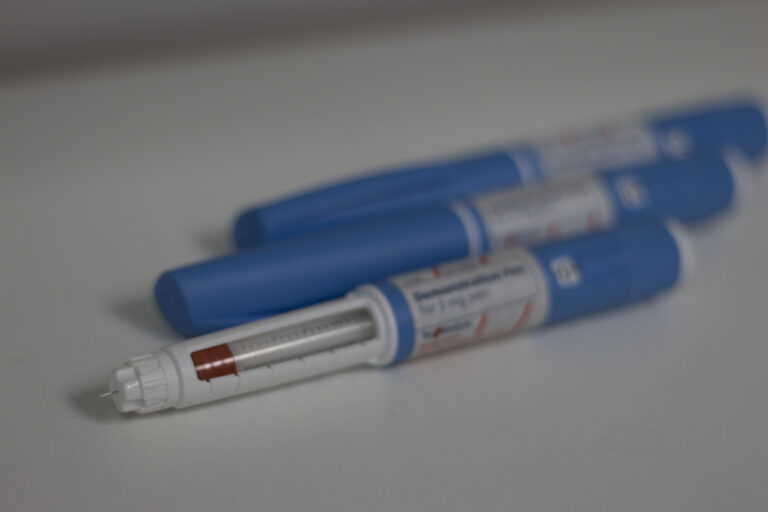
Will Your Weight Loss Program Be a Home Run or a Strike-Out?
 Having worked with individuals on weight loss over the past 10 years, I’ve had the opportunity to watch countless patients lose weight and keep it off. Unfortunately, I’ve also had the opportunity to watch countless patients lose weight only to regain it down the road. I’d like to share some of my observations on the differences between these two weight loss groups.
Having worked with individuals on weight loss over the past 10 years, I’ve had the opportunity to watch countless patients lose weight and keep it off. Unfortunately, I’ve also had the opportunity to watch countless patients lose weight only to regain it down the road. I’d like to share some of my observations on the differences between these two weight loss groups.
First, let’s look at some common traits of patients who lose weight and keep it off long-term, or ‘home runs.` They have a tendency to:
- Have realistic weight loss goals (or, better yet, not have a goal in pounds, but in being healthy and feeling good).
- Recognize that weight management is a life-long venture.
- Make real changes in the lifestyle that enables maintenance of weight loss.
- Explore ways to enjoy life, lower stress, increase activity, and be happier.
- Have successfully lost weight in the past only to regain – this time, they have a different mindset and desire a long-term approach.
- Be willing to continue the treatment(s) that aided in the weight loss; support visits, weight loss medications, meal replacements / protein supplementation, exercise program, etc.
How about some traits of those I worry will regain – `strike-outs.` They have a tendency to:
- Have unrealistic weight loss goals, sometimes picking a goal weight lower than what is expected with gastric bypass surgery, the most aggressive treatment available.
- Rate success or failure only on number of pounds lost, rather than recognizing other types of life improvements, such as health, happiness, feeling better, or doing more.
- Continue to prioritize other things / people above themselves.
- Do not change the lifestyles that caused the trouble in the first place – high stress job, interpersonal stressors, lack of sleep.
- Discontinue the treatments that helped with weight loss – support visits, medications, meal replacements / protein supplementation.
So, how can we take these observations and make a clinically useful treatment model? I suggest we think about obesity as a chronic disease. We will not cure this. But, with treatment we can make it better. If treatment stops, it tends to come back.
But which treatment(s)? How long? A good comparison might be treatment of depression. Like obesity, depression tends to improve with treatment (medications, therapy, or even exercise programs). However, when treatment is stopped, especially if too soon, depression tends to come back. If I am seeing an individual with depression and we find a treatment that works (the depression goes away), as a general rule of thumb, I continue treatment for 1 full year after remission. At that point, with careful observation and support, I gradually wean medication and monitor for depression recurrence. In my opinion, about 80% of the time, the depression stays in remission; however, about 20% of the time, at some point in the future, it recurs. Strike 1.
For a depression recurrence, I approach treatment a little differently. I again treat until achieving remission, but at that point, continue treatment longer – generally 1 to 2 years after remission. Again, at that point I generally try to wean medications, with careful support and watching for recurrent symptoms. If symptoms recur, we quickly restart treatment. After a 2nd treatment for depression, in my opinion about 50% of patients will stay in remission while 50% of the time it comes back. Strike 2.
After a second recurrence of depression, odds are very high that without treatment depression will recur – in my opinion, 80% or more risk. So, after strike 2, I recommend long-term (life-long) treatment. If treatment is discontinued, risk of recurrence would be too high. This would be strike 3.
I’d like to propose a similar strategy for weight reduction. For a first weight loss program, consider continuing a maintenance program for a minimum of 1 year after the weight is lost. This means if medications were used for weight loss, they probably shouldn’t be stopped for a full year of maintenance. The same is true for office visits and meal replacements / protein supplementation. At this point, periodic check-ins are still recommended to monitor for recurrence (watch for a regain of 5 or more pounds).
If weight is regained after a first attempt, consider continuation of treatment for 1 – 2 years of maintenance, then gradually weaning office visits, medications, and visits. A long term support strategy is critical at this stage to monitor for recurrence.
If weight is regained after the second attempt, long-term treatment should be considered as the regain risk is too high to discontinue treatment.
Often at CNC, patients have already attempted serious weight loss programs 12-14 times. We are way past the strike 2. In this situation, we are already at the last stage, and really need to take a chronic treatment approach geared to reducing weight, improving health, and improving happiness. In this situation, a discussion of goal weights isn’t very helpful. Rather, offering a treatment that can be continued as long as needed, such as support visits, partial meal replacements, medications (like the new FDA approved Belviq or Qsymia, both approved for chronic use), etc.
Dr. Lazarus and the staff at Clinical Nutrition Center are here to help patients achieve a home run – and provide support and encouragement every step of the way. If treatment is continued, then no matter how you slice it it is a home run because we are doing the best we can.




